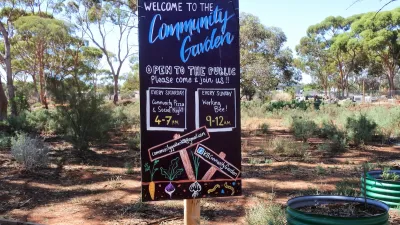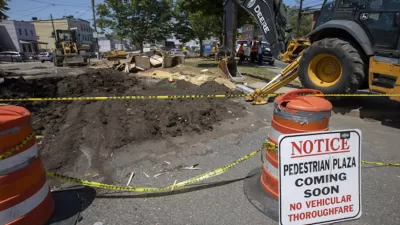Historian Daniel London argues that by "excavating a 'usable past'" urbanists can find relevant, cutting edge ideas for solving the seemingly unprecedented challenges of global urbanization.
For example, London points to the rapid urbanization of the industrial North Atlantic during the 19th century, and the associated ills of inequity and despair experienced in
the tenements of New York's Lower East Side and the rookeries of
London's East End as analogous to the challenges facing informal settlements in the contemporary developing world.
London looks to examples from the urban reform movement of the late 19th and early 20th
centuries and the "ethos of
experimentation, collaboration, and civic engagement with which
reformers and activists tackled these challenges...Their
vision of community empowerment stressed democratic
deliberation and bottom-up cooperation, a language paralleled today
by those who would upgrade slums in a non-destructive manner."
"Well before the term 'government 2.0' came into parlance
reformers on both sides of the Atlantic were trying to foster
active citizenship through public art and innovative local
government initiatives...Tactical urbanists of today can learn from the
playground movement of the early 1900s, which appropriated
under-utilised spaces and lots to serve neighbourhood needs.
Furthermore, all these ideas and practices were shared via national
and international networks of urban reformers. Sound familiar?"
For London, the responses by reformers of another era to the challenges of their times deserve to be assessed in the same way one might question the practices transmitted to us across space. "The means and ends of turn-of-the-century urban reformers
parallel our own in numerous ways, offering practices and ideas to
learn from and compare with our own efforts."
FULL STORY: Past is more than prologue: how today's urban reformers should learn from history

Alabama: Trump Terminates Settlements for Black Communities Harmed By Raw Sewage
Trump deemed the landmark civil rights agreement “illegal DEI and environmental justice policy.”

Study: Maui’s Plan to Convert Vacation Rentals to Long-Term Housing Could Cause Nearly $1 Billion Economic Loss
The plan would reduce visitor accommodation by 25% resulting in 1,900 jobs lost.

Why Should We Subsidize Public Transportation?
Many public transit agencies face financial stress due to rising costs, declining fare revenue, and declining subsidies. Transit advocates must provide a strong business case for increasing public transit funding.

Wind Energy on the Rise Despite Federal Policy Reversal
The Trump administration is revoking federal support for renewable energy, but demand for new projects continues unabated.

Passengers Flock to Caltrain After Electrification
The new electric trains are running faster and more reliably, leading to strong ridership growth on the Bay Area rail system.

Texas Churches Rally Behind ‘Yes in God’s Back Yard’ Legislation
Religious leaders want the state to reduce zoning regulations to streamline leasing church-owned land to housing developers.
Urban Design for Planners 1: Software Tools
This six-course series explores essential urban design concepts using open source software and equips planners with the tools they need to participate fully in the urban design process.
Planning for Universal Design
Learn the tools for implementing Universal Design in planning regulations.
Caltrans
Smith Gee Studio
Institute for Housing and Urban Development Studies (IHS)
City of Grandview
Harvard GSD Executive Education
Toledo-Lucas County Plan Commissions
Salt Lake City
NYU Wagner Graduate School of Public Service





























